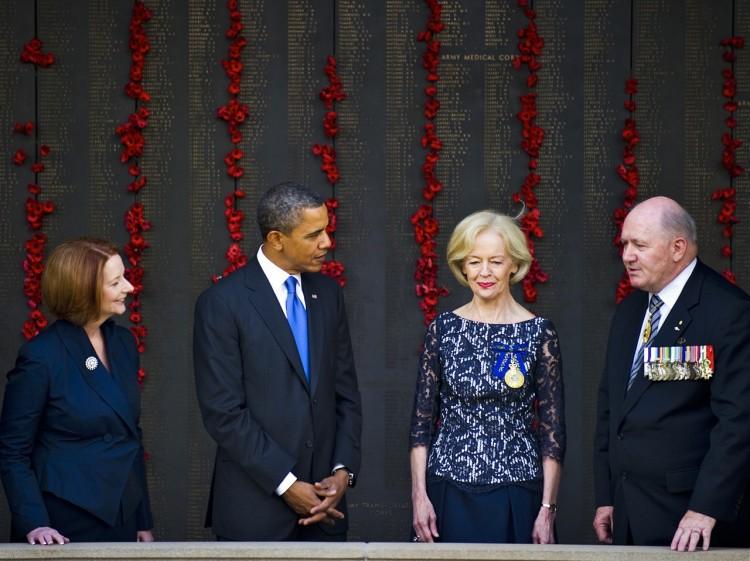The United States and Australia have agreed to a permanent U.S. military force in Australia’s north as part of a strengthening in the Australia, New Zealand, and the United States alliance (ANZUS).
President Barack Obama announced a twofold presence in Australia with the deployment of thousands of U.S. Marines to Darwin in the Northern Territory, as well as more visits by U.S. aircraft, ships, and submarines.
The announcement was made during Obama’s first official trip to Australia—two previously planned trips were canceled due to the financial crisis and the Gulf oil spill—and coincided with the 60th Anniversary of the ANZUS alliance.
The agreement, which will initially involve the deployment of 250 U.S. Marines in the north of Australia next year and build up to a rotation of 2,500 troops by 2017, was welcomed by Australian Prime Minister Julia Gillard.






